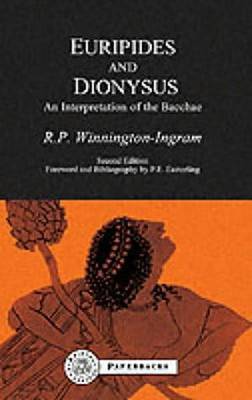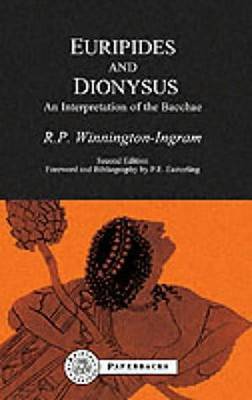
- Retrait gratuit dans votre magasin Club
- 7.000.000 titres dans notre catalogue
- Payer en toute sécurité
- Toujours un magasin près de chez vous
- Retrait gratuit dans votre magasin Club
- 7.000.0000 titres dans notre catalogue
- Payer en toute sécurité
- Toujours un magasin près de chez vous
Description
Euripides and Dionysus is a brilliant and influential study of the god of Greek drama and the one surviving tragedy, Euripides' Bacchae, in which he appears. The play has been intensively discussed by critics and very often staged, imitated and adapted in the years since Winnington-Ingram wrote this pioneering monograph, which is still cited as if it were a contemporary work of criticism. His interpretation, presented with great elegance, was composed at a time (just before the Second World War) when he was deeply troubled by what he had seen of fascism; it has special interest now for its place in the history of reception. P.E. Easterling's new Introduction sets the book in its original context and evaluates its reading of the Bacchae in light of more recent work on Greek religion and drama.
Spécifications
Parties prenantes
- Auteur(s) :
- Editeur:
Contenu
- Nombre de pages :
- 204
- Langue:
- Anglais
- Collection :
Caractéristiques
- EAN:
- 9781853995248
- Date de parution :
- 01-01-98
- Format:
- Livre broché
- Format numérique:
- Trade paperback (VS)
- Dimensions :
- 141 mm x 216 mm
- Poids :
- 299 g

Les avis
Nous publions uniquement les avis qui respectent les conditions requises. Consultez nos conditions pour les avis.






